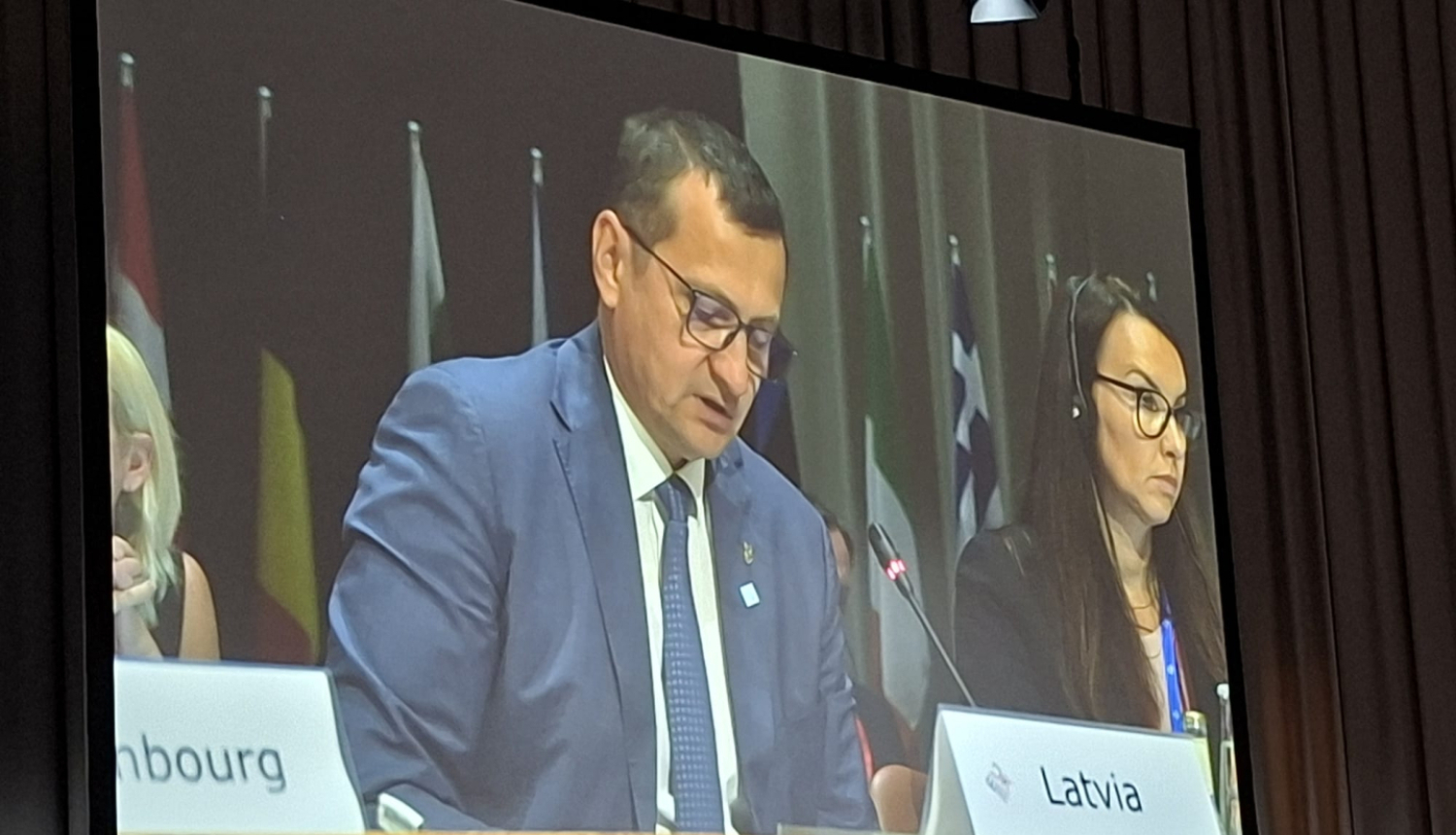From Sunday to Tuesday, 7th–9th September, Minister for Agriculture Armands Krauze participated in the informal meeting of EU Agriculture Ministers in Copenhagen, Denmark, which focused on improving the competitiveness of the EU agriculture and food sector and accelerating the green transition. Ministers discussed ways to promote innovation and investment in agriculture and food production, as well as the regulatory changes needed at the EU level to support the green transition.
In the discussions, Minister Krauze emphasized that the development of innovation and the success of the green transition in the sector require, first and foremost, a stable and predictable policy framework and financing. Agriculture is a highly complex sector, dependent not only on political decisions but also on climate, and it is vital for every inhabitant of the world. Given the current global geopolitical situation, reducing support for EU agriculture would be a short-sighted decision. Furthermore, the proposal to integrate the current agricultural policy into a single EU fund would create widespread confusion among farmers and contradict the shared EU objective of simplifying agricultural policy.
Minister Krauze stated during the EU member states’ discussions in Copenhagen:“We are disappointed with the European Commission’s proposal to integrate the Common Agricultural Policy and its measures into a single EU fund. The foundation for further green transition and improved competitiveness lies in knowledge, research-based, and innovative agricultural and food production. These priorities must be safeguarded within the next Common Agricultural Policy budget. Support for agriculture should not be reduced but, on the contrary, increased. New technological solutions that are environmentally friendly, efficient, and simultaneously improve farmers’ incomes are not possible without stable investment support.”
Farmers will not be able to meet the green transition targets without stable access to financial support. It is particularly important to maintain investment support, encourage cooperation and joint investments with more flexible collaboration rules, and promote generational renewal and skills development in the sector through dedicated funding. In addition to financial clarity, fair market conditions must be ensured by reducing the inflow of products into the EU market that do not comply with EU standards and negatively affect the competitiveness of EU producers, Latvia stressed.



